

Plenary talks will be presented by three groups of speakers on Monday, Wednesday, and Friday. The plenary speakers will explore the history, current context, and future directions of WAC.
A Note About Time Zones. Colorado is in the U.S. Mountain time zone and is currently using daylight savings time. To convert a time on our program to your local time, you can use a time zone converter, such as the one found at WorldTimeServer.com (https://www.worldtimeserver.com/current_time_in_US-CO.aspx).
Carol Rutz and Chris Thaiss
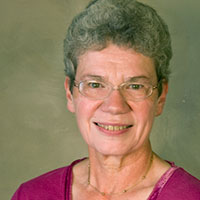 Carol Rutz concentrated her education in Minnesota with a B.A. in English from Gustavus Adolphus College, an M.A. in liberal studies from Hamline University, and a Ph.D. in English (Rhet/Comp specialty) from the University of Minnesota. She served Carleton College for 20 years as director of the Writing Program, which involved teaching writing courses, providing faculty development in a WAC context, and writing assessment. Her research interests include response to student writing, WAC pedagogy, writing assessment, and assessment of faculty development. She has served on the boards of both CCCC and WPA. In addition to a 16-year series of interviews of WAC luminaries for The WAC Journal (soon to be republished by the WAC Clearinghouse as a collection), she has published in journals including CCC, WPA, Assessing Writing, Numeracy, Composition Studies, Change, and Peer Review; provided a batch of book chapters; and, most recently, co-authored with Bill Condon and others, Faculty Development and Student Learning (Indiana UP, 2016).
Carol Rutz concentrated her education in Minnesota with a B.A. in English from Gustavus Adolphus College, an M.A. in liberal studies from Hamline University, and a Ph.D. in English (Rhet/Comp specialty) from the University of Minnesota. She served Carleton College for 20 years as director of the Writing Program, which involved teaching writing courses, providing faculty development in a WAC context, and writing assessment. Her research interests include response to student writing, WAC pedagogy, writing assessment, and assessment of faculty development. She has served on the boards of both CCCC and WPA. In addition to a 16-year series of interviews of WAC luminaries for The WAC Journal (soon to be republished by the WAC Clearinghouse as a collection), she has published in journals including CCC, WPA, Assessing Writing, Numeracy, Composition Studies, Change, and Peer Review; provided a batch of book chapters; and, most recently, co-authored with Bill Condon and others, Faculty Development and Student Learning (Indiana UP, 2016).
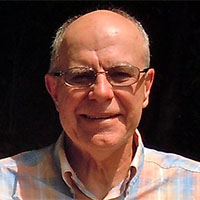 Chris Thaiss is Professor Emeritus of Writing Studies at the University of California, Davis, where he served as the first permanent director of the independent University Writing Program. He also directed UCD’s Center for Excellence in Teaching and Learning and coordinated the cross-disciplinary First-Year Seminar Program. He chaired the Ph.D. emphasis in Writing, Rhetoric, and Composition Studies until 2016. Active in developing WAC programs since 1978, he coordinated the International Network of WAC Programs, 2005-2015. He is a member of the International Collaborations committee of the Association for Writing Across the Curriculum and works on the editorial board of the WAC Clearinghouse. Until 2006, he taught at George Mason University, where he directed the composition and WAC programs and the university writing center. He served as chair of the English Department. In 2005, Thaiss received the University’s David King Award for career contributions to teaching excellence. Thaiss has written, co-written, or edited fourteen books, of which his newest are Writing Science in the Twenty-First Century (Broadview, 2019), based on his years of teaching writing to STEM majors at UC Davis, and the fourth edition of A Short History of Writing Instruction (Routledge, 2020), co-edited with James J. Murphy.
Chris Thaiss is Professor Emeritus of Writing Studies at the University of California, Davis, where he served as the first permanent director of the independent University Writing Program. He also directed UCD’s Center for Excellence in Teaching and Learning and coordinated the cross-disciplinary First-Year Seminar Program. He chaired the Ph.D. emphasis in Writing, Rhetoric, and Composition Studies until 2016. Active in developing WAC programs since 1978, he coordinated the International Network of WAC Programs, 2005-2015. He is a member of the International Collaborations committee of the Association for Writing Across the Curriculum and works on the editorial board of the WAC Clearinghouse. Until 2006, he taught at George Mason University, where he directed the composition and WAC programs and the university writing center. He served as chair of the English Department. In 2005, Thaiss received the University’s David King Award for career contributions to teaching excellence. Thaiss has written, co-written, or edited fourteen books, of which his newest are Writing Science in the Twenty-First Century (Broadview, 2019), based on his years of teaching writing to STEM majors at UC Davis, and the fourth edition of A Short History of Writing Instruction (Routledge, 2020), co-edited with James J. Murphy.
Pamela Flash and Teresa Redd
 Pamela Flash serves as Director of Writing Across the Curriculum, Co-Director of the Center for Writing, and Affiliate Graduate Faculty for the Literacy and Rhetorical Studies Minor at the University of Minnesota where she has taught and served as a program administrator since 1991. Flash is the founding director of the Writing Enriched Curriculum (WEC) program, which offers academic departments a structured, faculty-driven approach to strengthening relevant writing instruction within undergraduate curricula. Flash is also the founding director of the University of Minnesota’s interdisciplinary Teaching with Writing Program, which offers an annual series of workshops, seminars, and instructional consultations designed to support effective writing instruction within diverse contexts. Her research, publications, consultations, and presentations focus on the WEC model, writing pedagogy, composition theory, discourse communities, and the use of qualitative research methods (particularly inductive consultation, collaborative action research, and ethnographic methodologies) to enable pedagogic change on individual, departmental, and institutional levels.
Pamela Flash serves as Director of Writing Across the Curriculum, Co-Director of the Center for Writing, and Affiliate Graduate Faculty for the Literacy and Rhetorical Studies Minor at the University of Minnesota where she has taught and served as a program administrator since 1991. Flash is the founding director of the Writing Enriched Curriculum (WEC) program, which offers academic departments a structured, faculty-driven approach to strengthening relevant writing instruction within undergraduate curricula. Flash is also the founding director of the University of Minnesota’s interdisciplinary Teaching with Writing Program, which offers an annual series of workshops, seminars, and instructional consultations designed to support effective writing instruction within diverse contexts. Her research, publications, consultations, and presentations focus on the WEC model, writing pedagogy, composition theory, discourse communities, and the use of qualitative research methods (particularly inductive consultation, collaborative action research, and ethnographic methodologies) to enable pedagogic change on individual, departmental, and institutional levels.
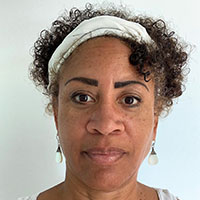 A former director of Howard University's WAC Program, Teresa Redd served on the Board of Consultants for the International Network of Writing Across the Curriculum Programs for nearly twenty years. In June 2016, she retired from Howard as a Full Professor after 33 years of service, including nearly 13 years as the director of Howard's Center for Excellence in Teaching, Learning & Assessment and 24 years as the director of the WAC Program. A winner of Howard's Teaching Excellence Award, Redd has earned a national reputation for her scholarship and service. She has published numerous articles and chapters about pedagogy and writing as well as two books, Revelations: An Anthology of Expository Essays by and about Blacks and A Teacher's Introduction to African American English: What a Writing Teacher Should Know. She has also served on the editorial boards of three national journals, the executive committee of the Conference on College Composition & Communication, and the advisory board for the HBCU Symposium on Rhetoric & Composition. In addition, in 2019, she helped plan and facilitate AWAC's first summer institute for WAC directors.
A former director of Howard University's WAC Program, Teresa Redd served on the Board of Consultants for the International Network of Writing Across the Curriculum Programs for nearly twenty years. In June 2016, she retired from Howard as a Full Professor after 33 years of service, including nearly 13 years as the director of Howard's Center for Excellence in Teaching, Learning & Assessment and 24 years as the director of the WAC Program. A winner of Howard's Teaching Excellence Award, Redd has earned a national reputation for her scholarship and service. She has published numerous articles and chapters about pedagogy and writing as well as two books, Revelations: An Anthology of Expository Essays by and about Blacks and A Teacher's Introduction to African American English: What a Writing Teacher Should Know. She has also served on the editorial boards of three national journals, the executive committee of the Conference on College Composition & Communication, and the advisory board for the HBCU Symposium on Rhetoric & Composition. In addition, in 2019, she helped plan and facilitate AWAC's first summer institute for WAC directors.
Al Harahap, Federico Navarro, and Alisa Russell
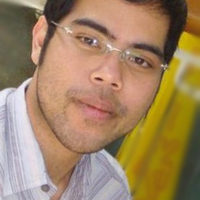 Al Harahap is Lecturer in the University of Oklahoma's Expository Writing Program, currently exploring WAC/WID and learning community opportunities with various campus communities, academic and otherwise. His research, service, and teaching lie at the intersections of DEI issues and WAC/WID, WCs, and WPA writing ecologies. He co-founded the WAC-GO, is outgoing Managing Editor of the journal Xchanges, and currently serves on the WAC Clearinghouse and CWPA boards. His current favourite classes to teach usually involve helping students bring their specialized discourses into public spheres and the sociopolitical world.
Al Harahap is Lecturer in the University of Oklahoma's Expository Writing Program, currently exploring WAC/WID and learning community opportunities with various campus communities, academic and otherwise. His research, service, and teaching lie at the intersections of DEI issues and WAC/WID, WCs, and WPA writing ecologies. He co-founded the WAC-GO, is outgoing Managing Editor of the journal Xchanges, and currently serves on the WAC Clearinghouse and CWPA boards. His current favourite classes to teach usually involve helping students bring their specialized discourses into public spheres and the sociopolitical world.
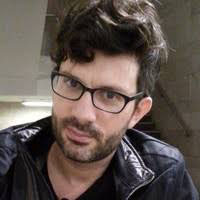 Federico Navarro has a Ph.D. in Linguistics. He is an Associate Professor at the Institute of Education Sciences, Universidad de O'Higgins (Chile). He is the Principal Investigator of two state-funded research projects on writing and learning in higher education (FONDECYT and CNED) and co-investigator of a state-funded project on writing across history (FONDECYT). He is the President of the Latin American Association of Writing Studies in Higher Education and Professional Contexts (ALES), founding member of the Association for Writing Across the Curriculum (AWAC), and editor of International Exchanges on the Study of Writing Series. He has presented his research in more than 70 conventions. He has published more than 100 scientific papers on writing studies, discourse studies, and systemic-functional linguistics, including the Spanish translation of “Reference Guide to Writing Across the Curriculum”.
Federico Navarro has a Ph.D. in Linguistics. He is an Associate Professor at the Institute of Education Sciences, Universidad de O'Higgins (Chile). He is the Principal Investigator of two state-funded research projects on writing and learning in higher education (FONDECYT and CNED) and co-investigator of a state-funded project on writing across history (FONDECYT). He is the President of the Latin American Association of Writing Studies in Higher Education and Professional Contexts (ALES), founding member of the Association for Writing Across the Curriculum (AWAC), and editor of International Exchanges on the Study of Writing Series. He has presented his research in more than 70 conventions. He has published more than 100 scientific papers on writing studies, discourse studies, and systemic-functional linguistics, including the Spanish translation of “Reference Guide to Writing Across the Curriculum”.
 Alisa Russell is an Assistant Professor of English and WAC leader in the Writing Program at Wake Forest University. Her areas of interest include rhetorical genre studies, public writing, and WAC, and her research focuses on increasing community access through writing and writing innovations. Her work has appeared in journals such as Composition Forum, The WAC Journal, Across the Disciplines, and Pedagogy. She is a founder of the WAC Graduate Organization, and she currently serves as Co-Chair of the WAC Summer Institute Committee for AWAC.
Alisa Russell is an Assistant Professor of English and WAC leader in the Writing Program at Wake Forest University. Her areas of interest include rhetorical genre studies, public writing, and WAC, and her research focuses on increasing community access through writing and writing innovations. Her work has appeared in journals such as Composition Forum, The WAC Journal, Across the Disciplines, and Pedagogy. She is a founder of the WAC Graduate Organization, and she currently serves as Co-Chair of the WAC Summer Institute Committee for AWAC.